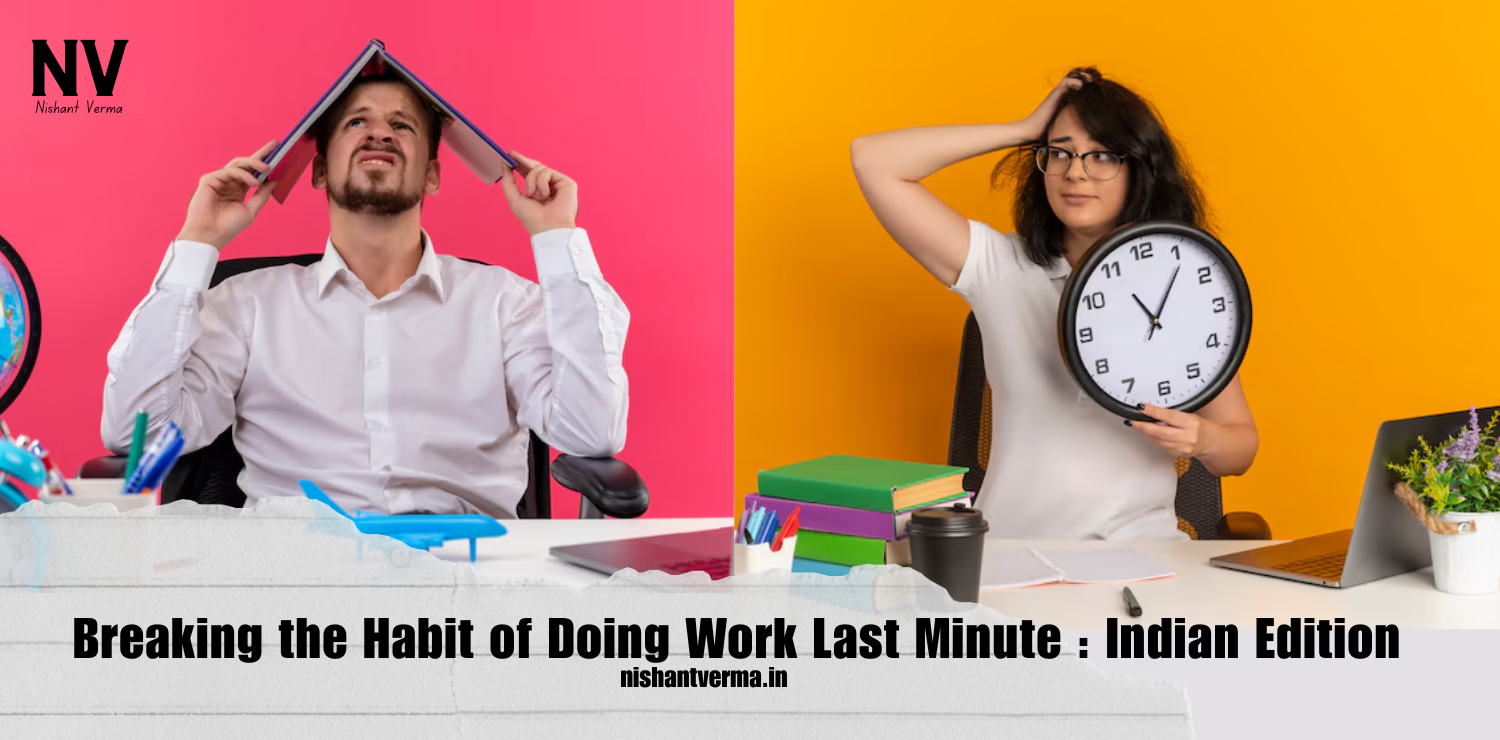In India, we are taught from a very young age to respect our elders, to be helpful, and to say yes when someone asks for something. While this is a beautiful part of our culture, it often becomes difficult for many people to say “no” — even when their own time, energy, or peace of mind is at stake. This habit of always saying “yes” leads to overcommitment, stress, and a lack of time for personal priorities. But learning the art of saying no, especially when it comes to our time, is essential for a healthy and balanced life & to maintain time boundaries.
This article will explore why saying no is important, how Indian culture sometimes makes it challenging, and how we can set respectful but firm time boundaries without hurting relationships. If you often feel overwhelmed or guilty for not being available all the time, this read will help you understand the importance of valuing your own time.
Why it’s hard to say no in Indian society
In Indian families and social circles, being available for others is considered a virtue. Whether it’s attending a relative’s function, doing extra work for a colleague, or helping a neighbor at odd hours — many people feel they cannot say no. The fear of being judged, hurting someone’s feelings, or being labelled as “selfish” stops them from setting limits.
Many times, people are worried that if they say no, they will be seen as disrespectful or less caring. But the reality is, always saying yes doesn’t make you a good person if it comes at the cost of your own health, time, or peace. In fact, saying no when needed shows that you respect both yourself and others enough to be honest and responsible.

Why setting time boundaries is important
Time is one of the most valuable things in life. Once lost, it never comes back. If you keep saying yes to everyone and everything, you will not have enough time for your own goals, rest, or happiness. This leads to stress, frustration, and even burnout.
Setting time boundaries means being clear about how much time you can give to others, and how much you need for yourself. It helps in managing your energy, planning your day better, and focusing on things that truly matter.
For example, if someone calls you at work hours for something that is not urgent, it’s okay to tell them politely that you’ll get back later. If you are constantly expected to be present at every family event, but it affects your personal time, you can choose to attend only those which are meaningful to you.

Saying no doesn’t mean being rude
One of the biggest myths is that saying no means being rude. That’s not true. It all depends on how you say it. You can say no with kindness and respect. For example, if a friend invites you to a party but you are tired or already have plans, you can say, “I really appreciate the invite, but I won’t be able to make it this time. I hope you have a great time!” This way, you’re being honest without hurting anyone.
It’s also important to understand that you don’t need to give long explanations for saying no. A simple and respectful reason is enough. People who truly care about you will understand.
Tips to say no respectfully in an Indian context
Start with gratitude: When someone asks you for something, first thank them for thinking of you. For example, “Thanks for considering me for this task.”
Be honest but kind: Explain that you are unable to do it due to time constraints or prior commitments. Keep your tone soft and friendly.
Use “I” statements: This makes your message sound personal, not blaming. Say, “I won’t be able to help this time,” instead of “You are asking too much.”
Offer alternatives (if possible): If you cannot do something but know someone who can, or suggest another time, it shows you still care. For example, “I can’t join this weekend, but maybe next month we can plan something.”
Practice saying no: Like any skill, it gets easier with practice. Start with small situations and slowly build your confidence.
Balancing relationships and time boundaries
Family bonds and social relationships are important in Indian culture. But healthy relationships also need respect for each other’s time and space. If someone truly cares for you, they will not mind if you occasionally say no. In fact, they will respect your honesty.
Communicate openly with your close ones. Let them know that you are trying to manage your time better so that you don’t get stressed. Most people will appreciate your clarity.
Also, remember that it’s okay to take time for yourself. You don’t always need to be available to everyone. Taking breaks, resting, and spending time on your own hobbies or dreams is not selfish — it is self-care.

When to definitely say no
There are certain situations where saying no is not just an option — it is necessary.
- When something affects your mental or physical health
- When it interferes with your important work or goals
- When you are being taken for granted repeatedly
- When the request is unreasonable or against your values
- When you simply do not have the time or energy
Saying yes to such things can lead to long-term problems. Learning to say no in these cases is a sign of strength, not weakness.
A new mindset for a modern India
India is changing. With fast-paced lifestyles, growing career demands, and increasing stress levels, it’s more important than ever to respect our time and mental space. Saying no doesn’t mean turning away from our values, but adapting them in a way that supports both personal well-being and meaningful relationships.
Many young Indians today are learning to balance tradition with modern thinking to build a balanced life. They are working hard, taking care of their health, managing relationships, and still finding time to grow personally. One of the key things helping them is the ability to set time boundaries.
When you say no wisely, you are saying yes to your priorities, your peace, and your personal growth. And that’s something to be proud of.
Conclusion
In the end, learning the art of saying no is one of the most empowering skills you can have. In a culture, especially in our Indian culture where helping others is deeply respected, it’s also time to respect your own needs. With polite words, kind intentions, and clear time boundaries, you can protect your time without breaking your relationships.
So next time you feel pressure to say yes, take a deep breath and ask yourself: Is this the best use of my time? If the answer is no, then don’t be afraid to say it. Your time is precious — treat it that way.
If you found this article helpful, try using one small tip this week to protect your time. You’ll be surprised how much lighter and happier you feel.




